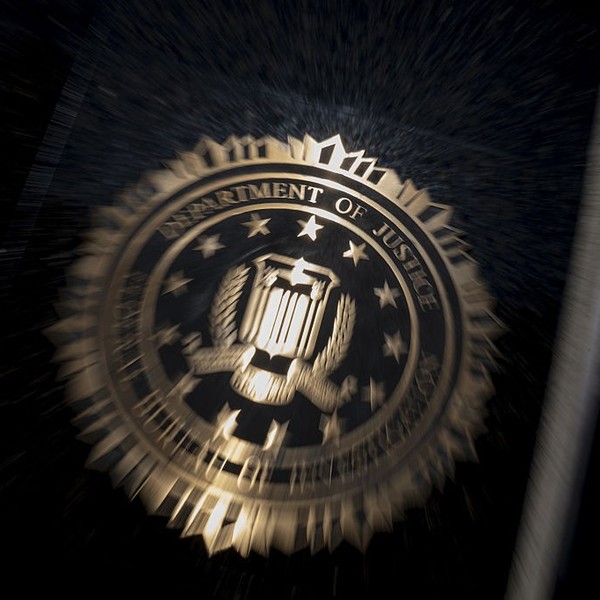OPINION — The alleged Privacy Act violation by Trump administration officials in publicly disclosing former FBI Special Agent Peter Strzok’s personal text messages without his permission as described in his lawsuit filed last Tuesday in U.S. Federal District Court in the District of Columbia could present a major new problem for the White House.
Although most news reports focused on Strzok’s claim that his firing was political and he wants reinstatement, the Privacy Act element deserves greater attention.
Strzok’s suit claims that wide disclosure of the text messages, which were written during the 2016 presidential campaign and contain frank criticisms of then-candidate Donald Trump “allowed President Trump and his allies to mount a public relations effort falsely depicting Special Agent Strzok as a leader of a ‘Deep State’ ‘witch hunt’ against President Trump in order to stir up outrage among the President’s supporters and discredit the Russia investigation.”
The picture of government officials reaching into government files to gather material to embarrass or attack political opponents reminded me of President Nixon’s attempts more than 40 years ago to get personal tax returns or generate Internal Revenue Service audits of individuals on his so-called “enemies list. Those activities became elements of Article 2 of the Nixon Articles of Impeachment that passed the House Judiciary Committee on July 27, 1974.
Strzok’s text messages, exchanged with FBI attorney Lisa Page, with whom he was having an affair, were intended to be private but since they were exchanged on FBI-owned devices, they were maintained in FBI records systems. The Justice Department has several systems for collecting such text messages which are retrievable based on an individual’s FBI-issued cell phone.
However, under the Privacy Act, “No agency shall disclose any record which is contained in a system of records by any means of communication to any person, or to another agency, except pursuant to a written request by, or with the prior written consent of, the individual to whom the record pertains.”
There are exceptions though. In this case, when the Justice Department’s own Inspector General, Michael E. Horowitz, was investigating Strzok’s activities with regard to the Hillary Clinton e-mail inquiry, a set of Strzok’s text messages then also became part of the records of that IG investigation.
On July 27, 2017, Horowitz’s office informed Special Counsel Robert Mueller of the existence of text messages. Although federal regulations permit an FBI agent to “[e]xpress his or her opinion as an individual privately and publicly on political subjects and candidates,” Mueller immediately removed Strzok from his investigation.
According to Strzok’s lawsuit, “Between late July and December 2017, someone from the Department of Justice alerted the White House to the existence of these texts and, at least, their general content.”
It was not until December 2, 2017 that the first detailed stories appeared about Strzok leaving Mueller’s investigation with the reason being linked to his anti-Trump texting with Page during the 2016 campaign. Within days, conservative columnists were calling for a special counsel to investigate Strzok’s conduct and the media began searching for the texts themselves.
On December 5, 2017, Sen. Charles Grassley (R-Iowa), chairman of the Judiciary Committee, sent a letter to FBI Director Christopher Wray, seeking the text messages plus information related to the opening of the Russia investigation.
On Dec. 12, Sarah Isgur Flores, the Justice Department’s director of public affairs, gave some news media unusual access to what turned out to be nearly 375 pages of private text messages exchanged over a 15-month period of time during the 2016 presidential campaign.
On the same evening that the Justice Department gave access to reporters, some of the text messages appeared on Fox News and in stories published by Breitbart, Politico and The Washington Examiner.
“Special Agent Strzok did not at any time authorize the DOJ [the Justice Department] to disclose these records,” according to the lawsuit.
That same day, some text messages were released to the Senate Judiciary Committee according to a letter sent Dec. 13, by Grassley to then-Deputy Attorney General Rod Rosenstein. The Privacy Act does permit providing records, such as the texts, to congressional committees with jurisdiction over the matters involved.
At a House Judiciary Committee hearing Dec. 13, Rosenstein said of the release to journalists, “We consulted with the inspector general to determine that he had no objection to releasing the material. If he had, we would not have released it."
In response to Democratic questioning, Rosenstein acknowledged that reporters had been invited to the Justice Department to review the text messages the previous day. He said that was done because it was determined the information was “appropriate for public release.” Rosenstein added, “Our goal, congressman, is to make sure that it’s clear to you and the American people we are not concealing anything that is embarrassing to the FBI.”
On Dec. 14, Trump picked up on the example of the Strzok-Page texts, telling reporters: “It’s a shame what’s happened with the FBI, but it is very sad when you look at those documents [the text messages], and how they’ve done that is really, really disgraceful. And you have a lot of very angry people that are seeing it.”
On Dec. 15, Horowitz sent a letter to Rep. Gerald Nadler (D-N.Y.), then-ranking Democrat on the Judiciary Committee, in response to questions raised by Rosenstein’s testimony two days earlier. In his letter, Horowitz said that although he had testified a month earlier that he had no objection to providing Congress with materials gathered during his investigation, the Justice Department “did not consult with the OIG [Office of the Inspector General] before sharing the text messages with the press.”
In response to the Horowitz letter, Justice’s Flores tweeted that she had released the texts after consultation with “senior career ethics advisors” who had “determined that there were no legal or ethical concerns, including under the Privacy Act, that prohibited the release of the information to the public, either by members of Congress or by the [Justice] Department.”
It would be interesting to know who made such a determination.
Since then, Trump has repeatedly spoken and tweeted about the Strzok/Page texts, doing so as recently as May 23 of this year during a press conference when he accused the former FBI special agent of treason based on what he had written in one text message back in 2016.
“This campaign to publicly vilify Special Agent Strzok contributed to the FBI’s ultimate decision to unlawfully terminate him, as well as to frequent incidents of public and online harassment and threats of violence to Strzok and his family that began when the texts were first disclosed to the media and continue to this day,” his attorneys wrote in the lawsuit.
If the Federal Court permits Strzok to take discovery depositions, the public may eventually find out who authorized the disclosures, and whether the White House played role, which would not necessarily be good news for President Trump.
Read more national security related expert perspectives and analysis in The Cipher Brief
















